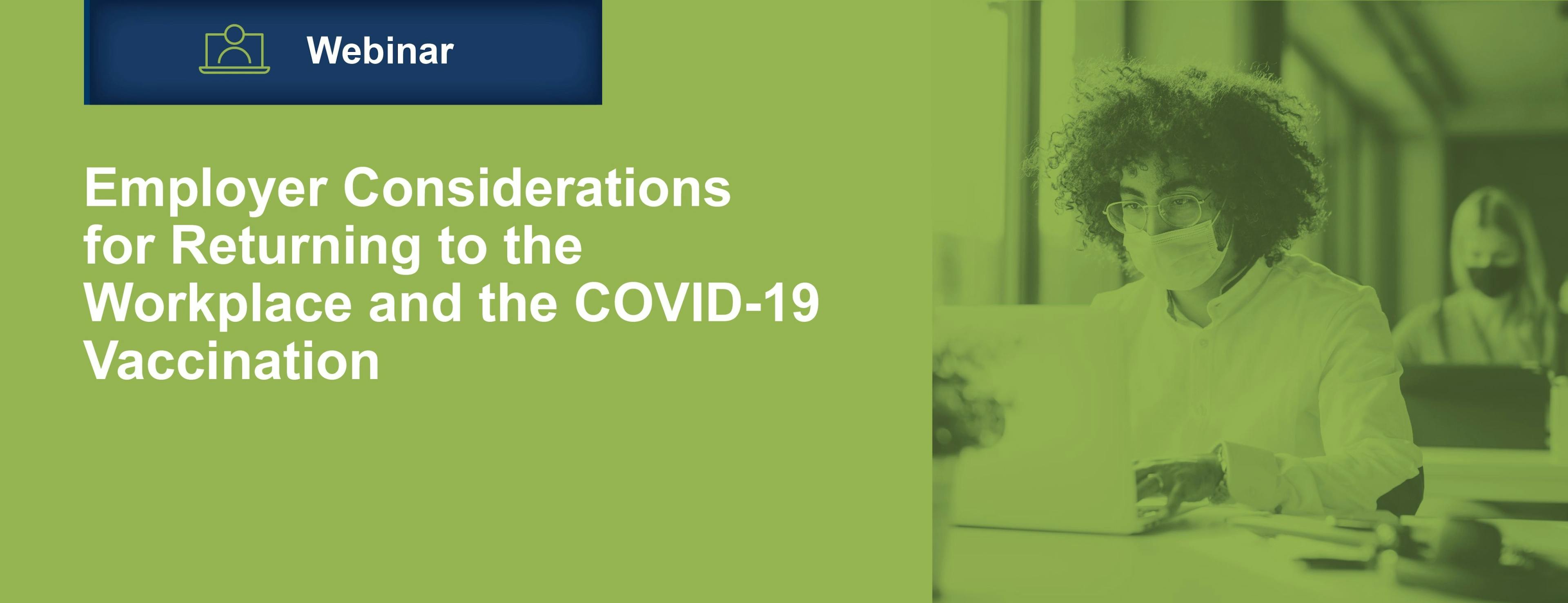Employer Considerations for COVID-19 Vaccination and Returning to the Workplace
By Megan O'Toole | Published July 1, 2021

A few months ago, we wrote about the legal considerations for employers as vaccines became more widely available in the U.S. In this blog, we discussed whether employers could inquire about vaccination status, encourage employees to get vaccinated, provide accommodation for unvaccinated employees, and how to watch for discrimination.
Since that post, however, the number of vaccinated people in the U.S. has nearly quadrupled, with over 150M people fully vaccinated and over 50% of Americans having received at least one dose. While these numbers are encouraging and suggest that many companies will be resuming in-office work this year, returning to the workplace will not be necessarily straightforward.
To reopen offices, employers must consider vaccination rates among their own employees, COVID-19 testing strategies, mask requirements, and the ongoing threat of COVID-19 exposure as strains such as the Delta variant continue to spread. In our COVID-19 Report, we found that a majority of companies we surveyed had no testing services or vaccination policy in place for their employees.
Questions abound: How should you approach vaccines and employees returning to the workplace? Should you require employees to be vaccinated before returning to the workplace? What to do about masks once back in the office?
In July, ABD hosted a webinar in collaboration with Robert Hudock of Hudock Employment Law Group to discuss issues pertaining to the COVID-19 vaccine and returning to the workplace. This webinar provides important information, insights, and considerations for employers as we enter the next stage of the COVID-19 pandemic. Click here

Megan O'Toole
Marketing Manager
Megan is a Marketing Manager with a focus on content development and strategy. Megan works with Newfront's key thought leaders to create compelling content and meaningful resources for our peers and clients.


